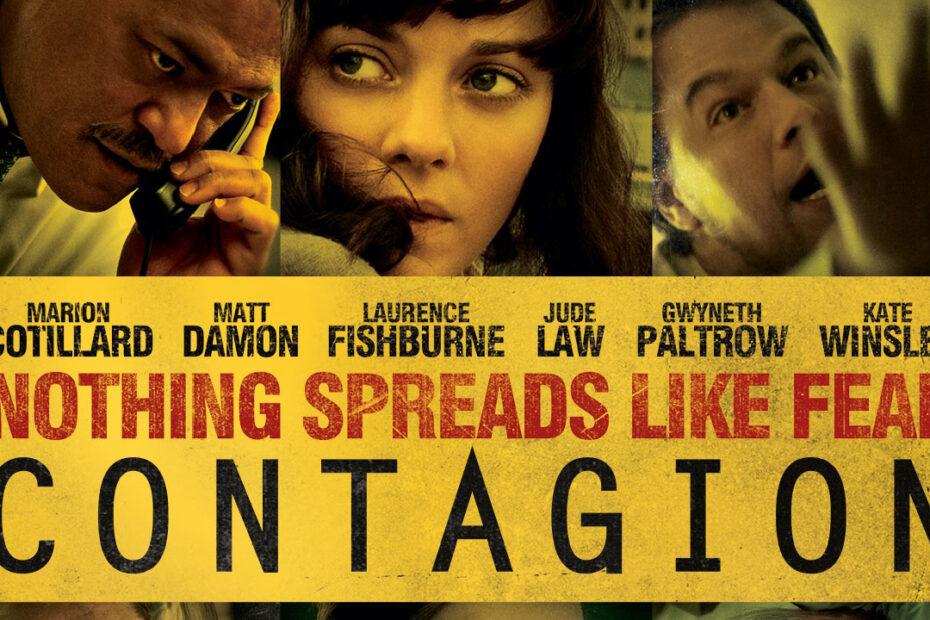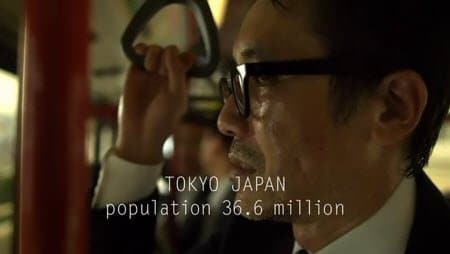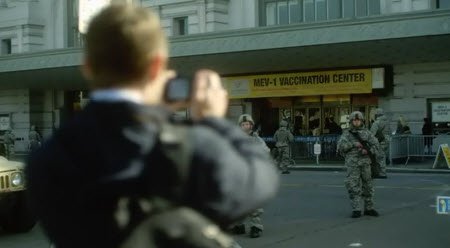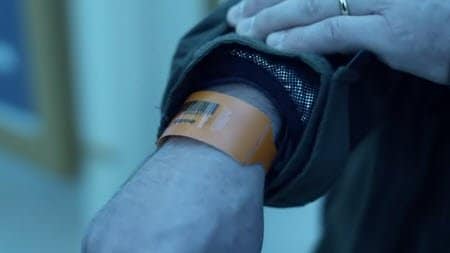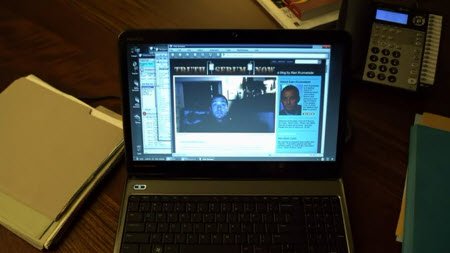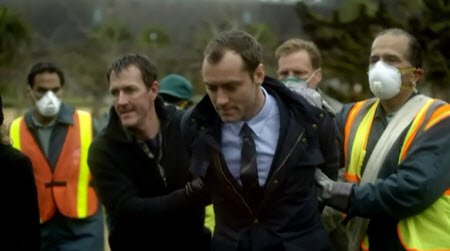In the midst of the coronavirus panic, the 2011 movie “Contagion” became one of the most-watched movies online. Here’s a look at the main themes of the movie and how they are becoming a reality in 2020
As coronavirus spreads fear and panic across the world, streaming services have been observing a spike of interest in the 2011 movie Contagion. Starring Matt Demon, Gwyneth Paltrow and Lawrence Fishburne, the movie follows the outbreak of a deadly virus called MEV-1 and its disastrous impacts on society. Needless to say, in today’s context, Contagion is not a comforting watch. In fact, if the whole Coronavirus situation is already making you anxious, you should probably avoid Contagion. Because it will only make things worse.
In fact, the slogan of the movie is “Nothing spreads like fear” – and that is basically the goal of the movie. To scare and to educate. Over eight years ago, I wrote the article “Contagion”: How Disaster Movies “Educate” the Masses where I highlighted the main messages of this movie and the blueprint it lays it out for future epidemics.
Back in 2012, I found it important to analyze this movie because it is not simply a “scary thriller”. In fact, there is nothing entertaining about that movie. It is an educational video. It is an “ultra-realistic” depiction of a massive pandemic outbreak that takes place in real locations and that involves real organizations. Indeed, while the movie was directed by Steven Soderbergh, its narrative was shaped with input from the World Health Organization (WHO), the Center for Disease Control (CDC) and various specialists.
Here’s an excerpt of an interview with Contagion writer Scott Z. Burns about the involvement of these organizations in the making of the movie:
CS: Were you able to get in touch with anyone from the World Health Organization (WHO)?
Burns: Yeah, I went to CDC in Atlanta a number of times. We actually shot part of the movie there, and we did have a lot of conversations with WHO throughout the process. Larry Brilliant and Dr. Lipkin helped us a lot in terms of reaching out to WHO, so they were very aware of the movie. In fact, we shot part of the movie there as well. The scene where Marion Cotillard walks in (to the office) in Geneva.
– Coming Soon, CS Interview: Contagion Writer Scott Z. Burns
To put things in context, the movie came out a couple of years after the H1N1 crisis in 2008. After months of panic and a mass vaccination campaign, some studies showed that the WHO and the CDC grossly overestimated the number of actual H1N1 cases and pushed a vaccine that many deemed unnecessary. A movie like Contagion was a good remedy for this tarnished credibility.
In 2020, the world faces another major epidemic scare and Contagion becomes relevant again. Not only that, but mass media has also been casting a solid spotlight on it.
As coronavirus spreads fear and panic across the world, streaming services have been observing a spike of interest in the 2011 movie Contagion. Starring Matt Demon, Gwyneth Paltrow and Lawrence Fishburne, the movie follows the outbreak of a deadly virus called MEV-1 and its disastrous impacts on society. Needless to say, in today’s context, Contagion is not a comforting watch. In fact, if the whole Coronavirus situation is already making you anxious, you should probably avoid Contagion. Because it will only make things worse.
In fact, the slogan of the movie is “Nothing spreads like fear” – and that is basically the goal of the movie. To scare and to educate. Over eight years ago, I wrote the article “Contagion”: How Disaster Movies “Educate” the Masses where I highlighted the main messages of this movie and the blueprint it lays it out for future epidemics.
Back in 2012, I found it important to analyze this movie because it is not simply a “scary thriller”. In fact, there is nothing entertaining about that movie. It is an educational video. It is an “ultra-realistic” depiction of a massive pandemic outbreak that takes place in real locations and that involves real organizations. Indeed, while the movie was directed by Steven Soderbergh, its narrative was shaped with input from the World Health Organization (WHO), the Center for Disease Control (CDC) and various specialists.
Here’s an excerpt of an interview with Contagion writer Scott Z. Burns about the involvement of these organizations in the making of the movie:
CS: Were you able to get in touch with anyone from the World Health Organization (WHO)?
Burns: Yeah, I went to CDC in Atlanta a number of times. We actually shot part of the movie there, and we did have a lot of conversations with WHO throughout the process. Larry Brilliant and Dr. Lipkin helped us a lot in terms of reaching out to WHO, so they were very aware of the movie. In fact, we shot part of the movie there as well. The scene where Marion Cotillard walks in (to the office) in Geneva.
– Coming Soon, CS Interview: Contagion Writer Scott Z. Burns
To put things in context, the movie came out a couple of years after the H1N1 crisis in 2008. After months of panic and a mass vaccination campaign, some studies showed that the WHO and the CDC grossly overestimated the number of actual H1N1 cases and pushed a vaccine that many deemed unnecessary. A movie like Contagion was a good remedy for this tarnished credibility.
In 2020, the world faces another major epidemic scare and Contagion becomes relevant again. Not only that, but mass media has also been casting a solid spotlight on it.
So, is Contagion accurate? Yes, more than ever. Let’s look at the main themes of the movie and how they are becoming a reality in 2020.
Contagion
The movie begins by showing the various ways a virus can spread across the world in a matter of days.
Soon after, the virus reaches the United States and all hell breaks loose.
In Contagion, the public is depicted as rather idiotic and prone to panic.
In 2020, the coronavirus outbreak causing massive lines in stores as people stockpile various items.
In Contagion, as MEV-1 spreads in the United States, the American government flees to an undisclosed location and “looks for a way of working online”. In real life, the coronavirus scare has already reached the White House as several representatives (including Trump) were reportedly in contact with disease carriers. There are also plans for “working online”.
So, in Contagion, the American government basically goes into hiding and specific organizations take over (which happen to be the organizations that helped to create the movie): The CDC (Center for Disease Control), the WHO (the UN’s World Health Organization), FEMA (Federal Emergency Management Agency), the American Red Cross and the U.S. Army.
Soon after, the State of Minnesota is placed in quarantine.
While, in 2011, the concept of putting entire states in quarantine was a fictional (yet plausible) scenario, it became a reality in 2020. As you might know, the entire country of Italy is currently in lockdown.
It is also beginning to happen in the United States as the National Guard was sent to New Rochelle to help contain a cluster of infections.
As coronavirus spreads fear and panic across the world, streaming services have been observing a spike of interest in the 2011 movie Contagion. Starring Matt Demon, Gwyneth Paltrow and Lawrence Fishburne, the movie follows the outbreak of a deadly virus called MEV-1 and its disastrous impacts on society. Needless to say, in today’s context, Contagion is not a comforting watch. In fact, if the whole Coronavirus situation is already making you anxious, you should probably avoid Contagion. Because it will only make things worse.
In fact, the slogan of the movie is “Nothing spreads like fear” – and that is basically the goal of the movie. To scare and to educate. Over eight years ago, I wrote the article “Contagion”: How Disaster Movies “Educate” the Masses where I highlighted the main messages of this movie and the blueprint it lays it out for future epidemics.
Back in 2012, I found it important to analyze this movie because it is not simply a “scary thriller”. In fact, there is nothing entertaining about that movie. It is an educational video. It is an “ultra-realistic” depiction of a massive pandemic outbreak that takes place in real locations and that involves real organizations. Indeed, while the movie was directed by Steven Soderbergh, its narrative was shaped with input from the World Health Organization (WHO), the Center for Disease Control (CDC) and various specialists.
Here’s an excerpt of an interview with Contagion writer Scott Z. Burns about the involvement of these organizations in the making of the movie:
CS: Were you able to get in touch with anyone from the World Health Organization (WHO)?
Burns: Yeah, I went to CDC in Atlanta a number of times. We actually shot part of the movie there, and we did have a lot of conversations with WHO throughout the process. Larry Brilliant and Dr. Lipkin helped us a lot in terms of reaching out to WHO, so they were very aware of the movie. In fact, we shot part of the movie there as well. The scene where Marion Cotillard walks in (to the office) in Geneva.
– Coming Soon, CS Interview: Contagion Writer Scott Z. Burns
To put things in context, the movie came out a couple of years after the H1N1 crisis in 2008. After months of panic and a mass vaccination campaign, some studies showed that the WHO and the CDC grossly overestimated the number of actual H1N1 cases and pushed a vaccine that many deemed unnecessary. A movie like Contagion was a good remedy for this tarnished credibility.
In 2020, the world faces another major epidemic scare and Contagion becomes relevant again. Not only that, but mass media has also been casting a solid spotlight on it.
So, is Contagion accurate? Yes, more than ever. Let’s look at the main themes of the movie and how they are becoming a reality in 2020.
Contagion
The movie begins by showing the various ways a virus can spread across the world in a matter of days.
Soon after, the virus reaches the United States and all hell breaks loose.
Gwyneth Paltrow dies in a horrific matter, causing the viewers to be extra scared.
In Contagion, the public is depicted as rather idiotic and prone to panic.
Panicked people raid a pharmacy.
In 2020, the coronavirus outbreak causing massive lines in stores as people stockpile various items.
Buying tons of toilet paper : What people do when they’re scared but are not sure what to do.
In Contagion, as MEV-1 spreads in the United States, the American government flees to an undisclosed location and “looks for a way of working online”. In real life, the coronavirus scare has already reached the White House as several representatives (including Trump) were reportedly in contact with disease carriers. There are also plans for “working online”.
So, in Contagion, the American government basically goes into hiding and specific organizations take over (which happen to be the organizations that helped to create the movie): The CDC (Center for Disease Control), the WHO (the UN’s World Health Organization), FEMA (Federal Emergency Management Agency), the American Red Cross and the U.S. Army.
Soon after, the State of Minnesota is placed in quarantine.
The U.S. Army controls the flow of traffic in Minnesota and blocks those who attempt to leave the state.
While, in 2011, the concept of putting entire states in quarantine was a fictional (yet plausible) scenario, it became a reality in 2020. As you might know, the entire country of Italy is currently in lockdown.
It is also beginning to happen in the United States as the National Guard was sent to New Rochelle to help contain a cluster of infections.
In Contagion, things go way further than “containment”. The government declares Martial Law and people are directed to FEMA camps.
Mass Vaccination Campaign
After months of horror, panic, and death, a solution finally arrives: A vaccine.
In 2020, the ultimate solution to eradicate coronavirus will most likely take the form of a vaccine as well.
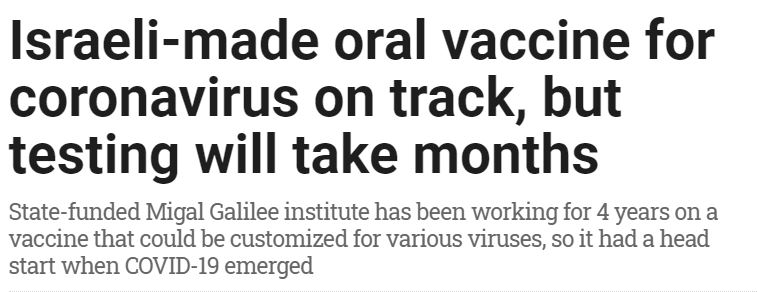
In Contagion, the vaccine is not only encouraged – it is mandatory.
Those who wear the bracelet are allowed to go to public places such as shopping malls. Those who do not get vaccinated cannot go anywhere and they ultimately die.
And some people refuse to get vaccinated.
The Conspiracy Theorist
An important part of the plot in Contagion involves a conspiracy theorist (played by Jude Law) who rants against the vaccine.
The blogger claims that a cure for the MEV-1 virus actually exists but it is repressed by the powers that be to sell vaccines. He also urges his readers not to take the vaccine that is given out by authorities.
In Contagion, the conspiracy theorist is depicted as a shady person with a questionable work ethic. The scientific community despises him as one scientist tells him: “Blogging is not writing, it’s graffiti with punctuation”.
The blogger is then set up by an undercover agent and gets arrested for “security fraud, conspiracy, and most likely manslaughter”.
In the end, it is discovered that the blogger was a fraud and that he made $4.5 million dollars off this false cure for MEV-1. In short, the movie tells the viewers that the government did the right thing by arresting the blogger.
In 2020, the fight against conspiracy theories about coronavirus is definitely on the agenda. Here are some recent headlines.

As coronavirus spreads fear and panic across the world, streaming services have been observing a spike of interest in the 2011 movie Contagion. Starring Matt Demon, Gwyneth Paltrow and Lawrence Fishburne, the movie follows the outbreak of a deadly virus called MEV-1 and its disastrous impacts on society. Needless to say, in today’s context, Contagion is not a comforting watch. In fact, if the whole Coronavirus situation is already making you anxious, you should probably avoid Contagion. Because it will only make things worse.
In fact, the slogan of the movie is “Nothing spreads like fear” – and that is basically the goal of the movie. To scare and to educate. Over eight years ago, I wrote the article “Contagion”: How Disaster Movies “Educate” the Masses where I highlighted the main messages of this movie and the blueprint it lays it out for future epidemics.
Back in 2012, I found it important to analyze this movie because it is not simply a “scary thriller”. In fact, there is nothing entertaining about that movie. It is an educational video. It is an “ultra-realistic” depiction of a massive pandemic outbreak that takes place in real locations and that involves real organizations. Indeed, while the movie was directed by Steven Soderbergh, its narrative was shaped with input from the World Health Organization (WHO), the Center for Disease Control (CDC) and various specialists.
Here’s an excerpt of an interview with Contagion writer Scott Z. Burns about the involvement of these organizations in the making of the movie:
CS: Were you able to get in touch with anyone from the World Health Organization (WHO)?
Burns: Yeah, I went to CDC in Atlanta a number of times. We actually shot part of the movie there, and we did have a lot of conversations with WHO throughout the process. Larry Brilliant and Dr. Lipkin helped us a lot in terms of reaching out to WHO, so they were very aware of the movie. In fact, we shot part of the movie there as well. The scene where Marion Cotillard walks in (to the office) in Geneva.
– Coming Soon, CS Interview: Contagion Writer Scott Z. Burns
To put things in context, the movie came out a couple of years after the H1N1 crisis in 2008. After months of panic and a mass vaccination campaign, some studies showed that the WHO and the CDC grossly overestimated the number of actual H1N1 cases and pushed a vaccine that many deemed unnecessary. A movie like Contagion was a good remedy for this tarnished credibility.
In 2020, the world faces another major epidemic scare and Contagion becomes relevant again. Not only that, but mass media has also been casting a solid spotlight on it.
So, is Contagion accurate? Yes, more than ever. Let’s look at the main themes of the movie and how they are becoming a reality in 2020.
Contagion
The movie begins by showing the various ways a virus can spread across the world in a matter of days.
Soon after, the virus reaches the United States and all hell breaks loose.
In Contagion, the public is depicted as rather idiotic and prone to panic.
In 2020, the coronavirus outbreak causing massive lines in stores as people stockpile various items.
In Contagion, as MEV-1 spreads in the United States, the American government flees to an undisclosed location and “looks for a way of working online”. In real life, the coronavirus scare has already reached the White House as several representatives (including Trump) were reportedly in contact with disease carriers. There are also plans for “working online”.
So, in Contagion, the American government basically goes into hiding and specific organizations take over (which happen to be the organizations that helped to create the movie): The CDC (Center for Disease Control), the WHO (the UN’s World Health Organization), FEMA (Federal Emergency Management Agency), the American Red Cross and the U.S. Army.
Soon after, the State of Minnesota is placed in quarantine.
While, in 2011, the concept of putting entire states in quarantine was a fictional (yet plausible) scenario, it became a reality in 2020. As you might know, the entire country of Italy is currently in lockdown.
It is also beginning to happen in the United States as the National Guard was sent to New Rochelle to help contain a cluster of infections.
In Contagion, things go way further than “containment”. The government declares Martial Law and people are directed to FEMA camps.
Mass Vaccination Campaign
After months of horror, panic, and death, a solution finally arrives: A vaccine.
In 2020, the ultimate solution to eradicate coronavirus will most likely take the form of a vaccine as well.
In Contagion, the vaccine is not only encouraged – it is mandatory.
Those who wear the bracelet are allowed to go to public places such as shopping malls. Those who do not get vaccinated cannot go anywhere and they ultimately die.
And some people refuse to get vaccinated.
The Conspiracy Theorist
An important part of the plot in Contagion involves a conspiracy theorist (played by Jude Law) who rants against the vaccine.
The blogger claims that a cure for the MEV-1 virus actually exists but it is repressed by the powers that be to sell vaccines. He also urges his readers not to take the vaccine that is given out by authorities.
In Contagion, the conspiracy theorist is depicted as a shady person with a questionable work ethic. The scientific community despises him as one scientist tells him: “Blogging is not writing, it’s graffiti with punctuation”.
The blogger is then set up by an undercover agent and gets arrested for “security fraud, conspiracy, and most likely manslaughter”.
In the end, it is discovered that the blogger was a fraud and that he made $4.5 million dollars off this false cure for MEV-1. In short, the movie tells the viewers that the government did the right thing by arresting the blogger.
In 2020, the fight against conspiracy theories about coronavirus is definitely on the agenda. Here are some recent headlines.
In Conclusion
As I explained back in 2012, the aim of Contagion was not to entertain but to educate. It lays a blueprint for the process that needs to take place when an epidemic arises: Fear and panic. Breakdown of social order. Control and lockdowns. Social distancing. Mandatory solution and repression of those who oppose it.
While, in 2020, things might not go as far as in Contagion (let’s hope not), the movie mentally prepares people for what could happen. And therein lies the awesome power of mass media to shape and mold society on a global level.
Article courtesy of Vigilant Citizen

